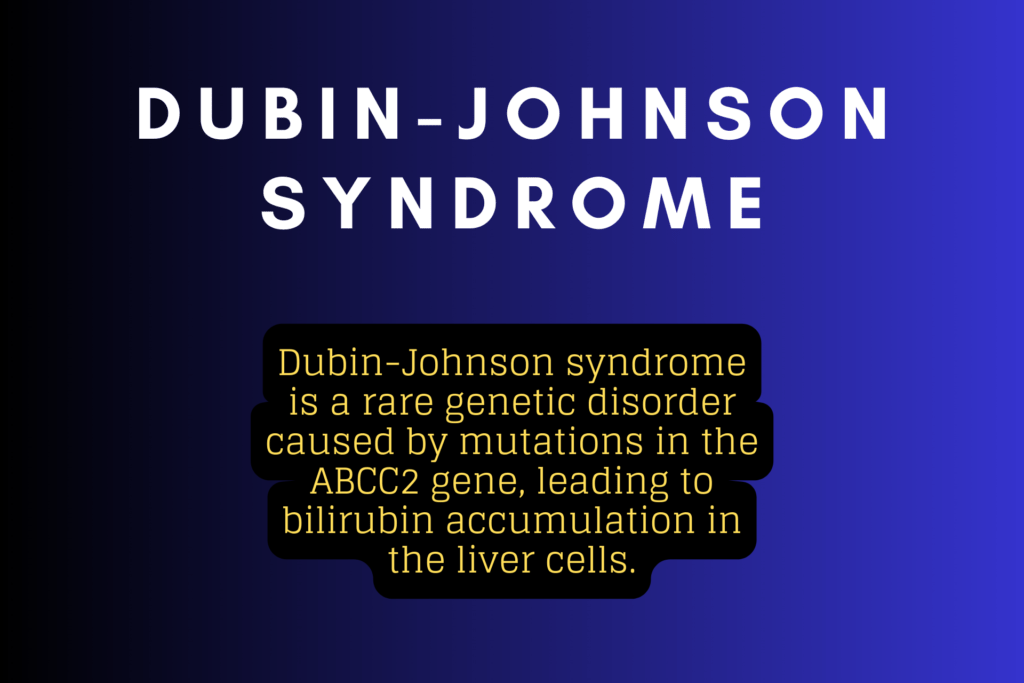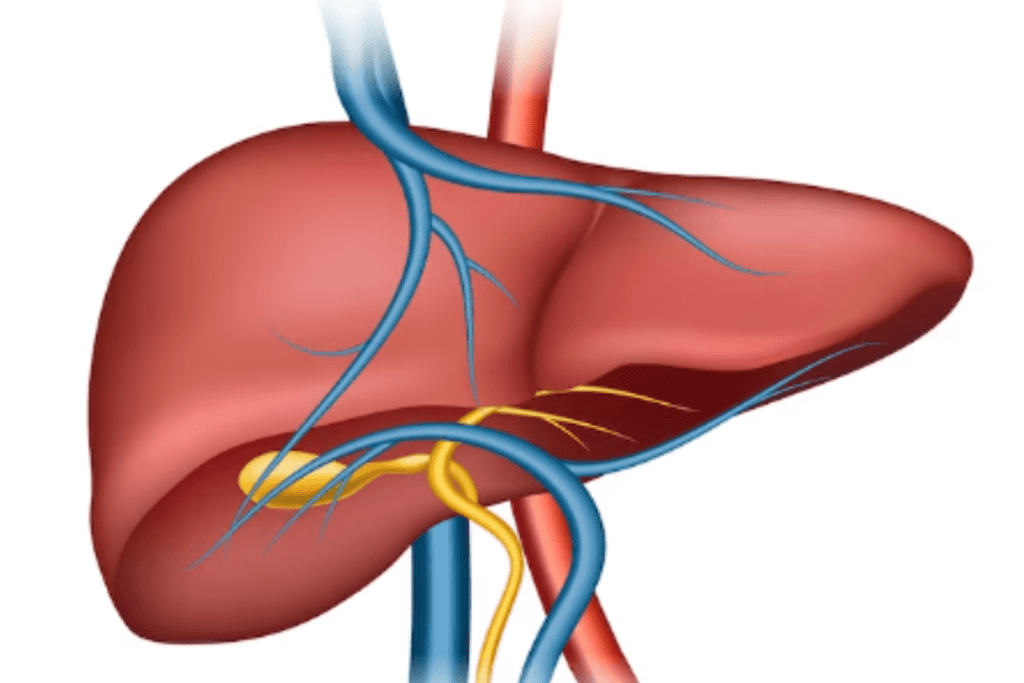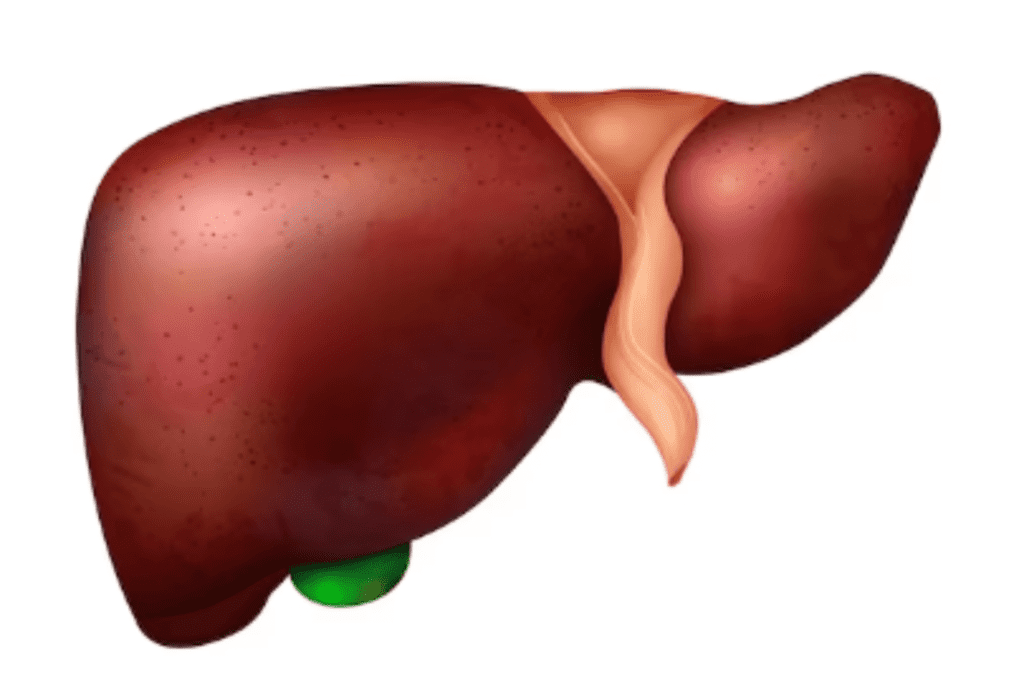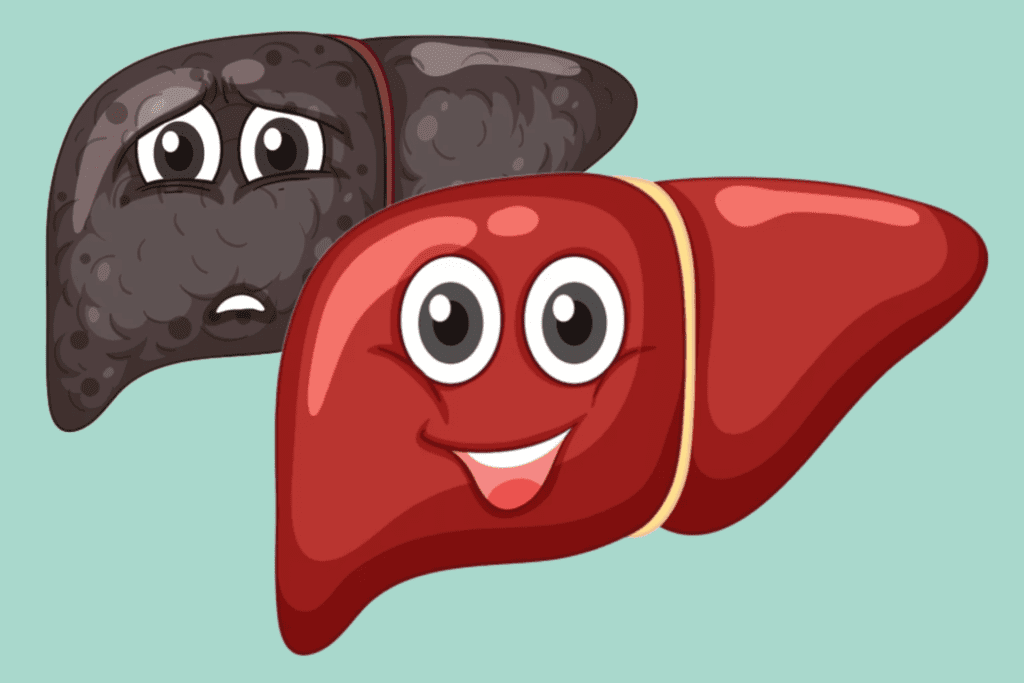
Dubin-Johnson syndrome is a rare inherited disorder that affects the liver’s ability to properly process and excrete bilirubin, a waste product from the breakdown of red blood cells. This results in elevated levels of bilirubin in the blood, leading to a mild form of jaundice where the skin and eyes appear yellowish. The condition is typically benign and does not cause significant health issues. It is caused by a mutation in the ABCC2 gene, which is responsible for transporting bilirubin out of liver cells. Despite its harmless nature, Dubin-Johnson syndrome requires monitoring and management to ensure liver function remains stable.
Table of Contents
ToggleWhat are the Symptoms of Dubin-Johnson syndrome?
The primary symptom of Dubin-Johnson syndrome is jaundice, which is the yellowing of the skin and the whites of the eyes due to the buildup of bilirubin in the body. This is often the most noticeable sign of the condition. Other common symptoms may include:
Dark Urine
Bilirubin can give the urine a darker color than normal.
Fatigue
Some individuals might experience mild fatigue or weakness, although this is not always present.
Abdominal Discomfort
In some cases, there might be mild discomfort or pain in the abdominal area.
Elevated Bilirubin Levels
Laboratory tests will show elevated levels of bilirubin in the blood.
What Causes Dubin-Johnson Syndrome?
Dubin-Johnson syndrome is a genetic disorder caused by changes (mutations) in a specific gene called ABCC2. This gene provides instructions for making a protein known as MRP2, which plays a crucial role in the liver.
The liver is responsible for processing various substances in the body, including bilirubin, a waste product that forms when old red blood cells break down. Bilirubin needs to be removed from the body, and the liver does this by excreting it into bile, a digestive fluid that helps break down fats.
In Dubin-Johnson syndrome, the mutations in the ABCC2 gene lead to a problem with the MRP2 protein. This protein is like a transporter that moves bilirubin from inside liver cells to the bile. When the MRP2 protein doesn’t work properly due to the mutations, bilirubin accumulates within the liver cells instead of being transported out. This accumulation of bilirubin causes the skin and eyes to become yellowish (jaundice).
The syndrome is inherited in an autosomal recessive manner. This means that for a person to have Dubin-Johnson syndrome, they must inherit a mutated copy of the ABCC2 gene from both of their parents. If they inherit only one mutated copy and one normal copy, they won’t have the syndrome but could pass the mutated gene to their children.
How is Dubin-Johnson Syndrome Diagnosed?
Dubin-Johnson syndrome is usually diagnosed through a combination of clinical evaluation, medical history, and laboratory tests. The following steps are commonly taken to diagnose the syndrome:
Clinical Evaluation
A doctor will assess the individual’s symptoms, particularly the presence of jaundice (yellowing of the skin and eyes), as well as any other related symptoms like dark urine or abdominal discomfort.
Medical History
The doctor will gather information about the patient’s family history and any other relevant medical conditions.
Laboratory Tests
Bilirubin Levels:
Blood tests are conducted to measure bilirubin levels in the blood. Elevated levels of bilirubin, particularly the type known as “conjugated bilirubin,” can indicate Dubin-Johnson syndrome.
Liver Function Tests:
Additional blood tests can assess the overall function of the liver and the levels of liver enzymes.
Urine Analysis:
The presence of bilirubin in the urine can be indicative of the syndrome.
Genetic Testing:
While genetic testing can pinpoint ABCC2 gene mutations causing Dubin-Johnson syndrome, it may not be essential for diagnosis if clinical and biochemical evidence proves adequate.
Imaging
In some cases, imaging techniques such as ultrasound or MRI might be used to assess the liver’s structure and rule out other liver conditions.
How is Dubin-Johnson Syndrome Treated?
Dubin-Johnson syndrome is generally a benign condition that often does not require specific treatment. The jaundice and mild symptoms associated with the syndrome do not usually cause significant health problems. Treatment, when needed, focuses on managing symptoms and promoting overall well-being. Here are several strategies that could be taken into account:
Symptom Management
If an individual experiences jaundice (yellowing of the skin and eyes), they might need to manage factors that can trigger or exacerbate it. These factors could include fasting for extended periods, which can cause the body to break down more red blood cells and produce more bilirubin.
Avoiding Triggers
Certain medications, especially those that affect bilirubin metabolism or the liver’s function, might need to be avoided or used cautiously. A healthcare provider can provide a list of medications to steer clear of and suggest alternatives if necessary.
Regular Monitoring
Individuals with Dubin-Johnson syndrome may need to undergo periodic medical check-ups, blood tests, and liver function tests. These tests can help monitor bilirubin levels, liver enzymes, and overall liver health. Regular monitoring ensures that the condition remains stable and that any potential issues can be addressed promptly.
Genetic Counseling
Genetic counseling can provide valuable information to individuals and families about the genetic basis of the syndrome. This includes explaining the inheritance pattern (autosomal recessive), discussing the likelihood of passing on the condition to offspring, and exploring reproductive options if desired.
Lifestyle Measures
Adopting a healthy lifestyle is important for overall well-being. A balanced diet, regular exercise, and avoiding excessive alcohol consumption can contribute to maintaining good health and supporting the liver’s function.
Supportive Care
While Dubin-Johnson syndrome itself is generally benign, individuals with the condition might need to focus on maintaining liver health. This could involve following medical advice on liver-friendly practices and addressing any related health concerns that might arise over time.
Can I Prevent Dubin-Johnson Syndrome?
Dubin-Johnson syndrome is a genetic condition, meaning it is caused by specific mutations in the ABCC2 gene. There is no known way to prevent or cure Dubin-Johnson syndrome because it is inherited from parents who carry the mutated gene.
The syndrome follows an autosomal recessive inheritance pattern, which means that both parents must carry a mutated copy of the ABCC2 gene for a child to have a chance of inheriting the syndrome. If both parents are carriers, there’s a 25% chance with each pregnancy that their child will have Dubin-Johnson syndrome, a 50% chance the child will be a carrier like the parents and a 25% chance that the child will not inherit the syndrome or be a carrier.
If you have a family history of Dubin-Johnson syndrome or are concerned about the possibility of carrying the mutated gene, you might consider genetic counseling. A genetic counselor can provide you with more information about the inheritance pattern, assess your risk, and discuss options for family planning and reproductive choices.
Dietary Guidelines for Dubin-Johnson Syndrome
While there are no strict dietary guidelines specifically tailored for Dubin-Johnson syndrome, adopting a balanced and liver-friendly diet can be beneficial for overall health. Here are some dietary considerations that individuals with Dubin-Johnson syndrome might find helpful:
Stay Hydrated
Drinking an adequate amount of water helps support various bodily functions, including liver health. Proper hydration can also help maintain the flow of bile, which is important for excreting bilirubin.
Moderate Fat Intake
While dietary fat is important for overall health, excessive consumption can put a strain on the liver. Opt for healthy fats found in sources like avocados, nuts, seeds, and fatty fish.
High-Fiber Foods
Foods rich in dietary fiber, such as whole grains, fruits, vegetables, and legumes, can aid in digestion and promote gut health. A healthy digestive system can contribute to optimal liver function.
Limit Alcohol
Excessive alcohol consumption can be taxing on the liver and might exacerbate symptoms. If you choose to consume alcohol, do so in moderation or consult your healthcare provider for personalized advice.
Avoid Fasting
Prolonged fasting or extreme diets that drastically restrict caloric intake can lead to increased breakdown of red blood cells and higher bilirubin levels. Eat regular, balanced meals to provide your body with a steady supply of nutrients.
Manage Medications
Some medications can affect liver function or bilirubin metabolism. Consult with your healthcare provider before taking any new medications or supplements to ensure they are safe for your condition.
Colorful Fruits and Vegetables
Include a diverse range of vibrant fruits and vegetables in your diet. These options are abundant in antioxidants and vitamins, promoting holistic health and wellness.
Lean Protein
Choose lean protein sources like poultry, fish, beans, lentils, and tofu. Protein is important for various bodily functions and can be processed by the liver without excessive strain.
Portion Control
Avoid overeating, as larger meals can burden the liver’s metabolic processes. Opt for smaller, more frequent meals to support digestion and bilirubin metabolism.
Hygiene and Food Safety
Practice good food hygiene and safety to prevent potential foodborne illnesses that might strain the liver’s function.
Conclusion
Dubin-Johnson syndrome is a rare genetic disorder caused by mutations in the ABCC2 gene, leading to bilirubin accumulation in the liver cells. While it results in jaundice and mild symptoms, prevention isn’t possible due to its genetic nature. Diagnosis involves clinical evaluation, lab tests, and genetic counseling. Treatment focuses on symptom management, avoiding triggers, and healthy lifestyle choices. A balanced diet, hydration, and moderate alcohol intake are beneficial. Research and medical guidance evolve, so staying informed through healthcare professionals and reliable sources is vital. Dubin-Johnson syndrome underscores the importance of genetics in health and emphasizes genetic counseling for family planning.
References
https://www.ncbi.nlm.nih.gov/pmc/articles/PMC10099096/
https://medlineplus.gov/genetics/condition/dubin-johnson-syndrome/
https://www.ncbi.nlm.nih.gov/pmc/articles/PMC4821713/
https://www.frontiersin.org/articles/10.3389/fped.2022.855210/full
https://www.nature.com/articles/pr2006112
https://bmcresnotes.biomedcentral.com/articles/10.1186/s13104-017-2811-6




